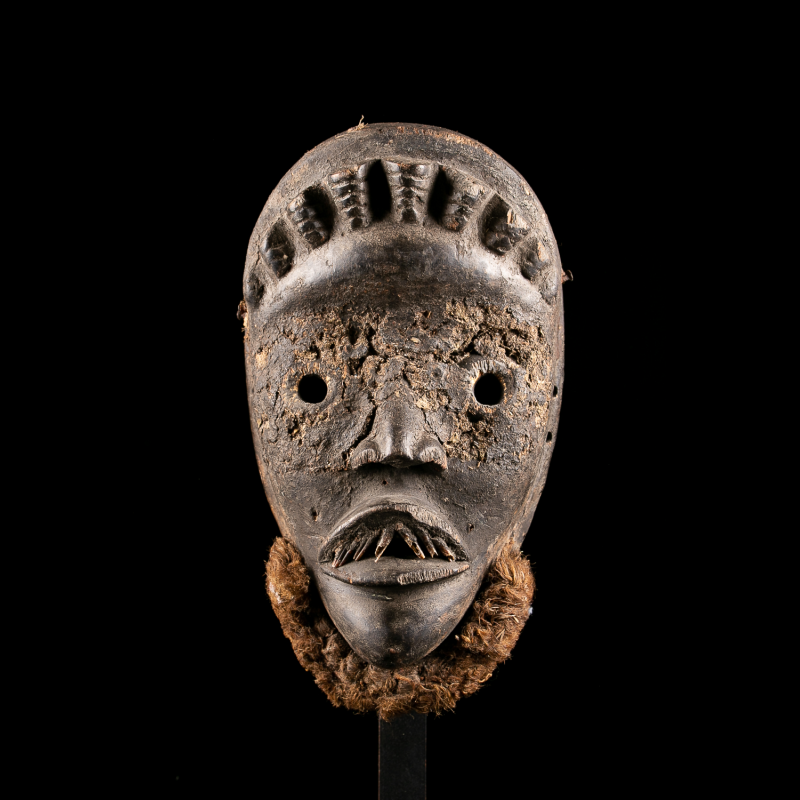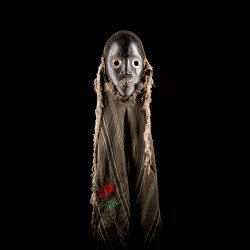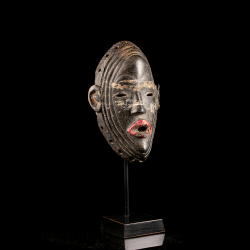













The traditional Dan masks are remarkable for the finesse of the woodwork.
The slightly concave faces fit into a perfect ovoid shape.
Beneath a full, domed forehead, ocular cavities announce openwork and circular eyes, often coated with vegetable gum, here crusty.
The nose is delicately trumpet-shaped, the mouth with hemmed, diamond-shaped lips is sometimes set with serpent's teeth.
These characteristics define the racing mask, called zakpei. He is still famous today.
The texture of the beard is made of vegetable fibers.
Autonomous and decentralized dan sculptors produce masks surprisingly close to each other, relating to the same archetype.
These beautifully crafted African masks in their composition come from the nucleal zone of the dan sculptors of the Ivory Coast.
The Dan, ethnically and culturally, are part of the southern Mandé (Dan-Koueni).
The term "Yacouba" is not adequate, it seems.
According to B. Holas, their Mande-type language is strongly impregnated with local archaic borrowings.
Patrilineal, they are decentralized, based on lineage.
They are farmers, growing rice and cassava on very wet land.
In the past, they also raised cattle of the so-called "lagoon" breed.
Hunting, gathering and fishing remained traditional. Through the Malinké, they discovered the techniques of weaving and ironwork.
Data sheet
You might also like

The traditional Dan masks are remarkable for the finesse of the woodwork.
The slightly concave faces fit into a perfect ovoid shape.
Beneath a full, domed forehead, ocular cavities announce openwork and circular eyes, often coated with vegetable gum, here crusty.
The nose is delicately trumpet-shaped, the mouth with hemmed, diamond-shaped lips is sometimes set with serpent's teeth.
These characteristics define the racing mask, called zakpei. He is still famous today.
The texture of the beard is made of vegetable fibers.
Autonomous and decentralized dan sculptors produce masks surprisingly close to each other, relating to the same archetype.
These beautifully crafted African masks in their composition come from the nucleal zone of the dan sculptors of the Ivory Coast.
The Dan, ethnically and culturally, are part of the southern Mandé (Dan-Koueni).
The term "Yacouba" is not adequate, it seems.
According to B. Holas, their Mande-type language is strongly impregnated with local archaic borrowings.
Patrilineal, they are decentralized, based on lineage.
They are farmers, growing rice and cassava on very wet land.
In the past, they also raised cattle of the so-called "lagoon" breed.
Hunting, gathering and fishing remained traditional. Through the Malinké, they discovered the techniques of weaving and ironwork.

